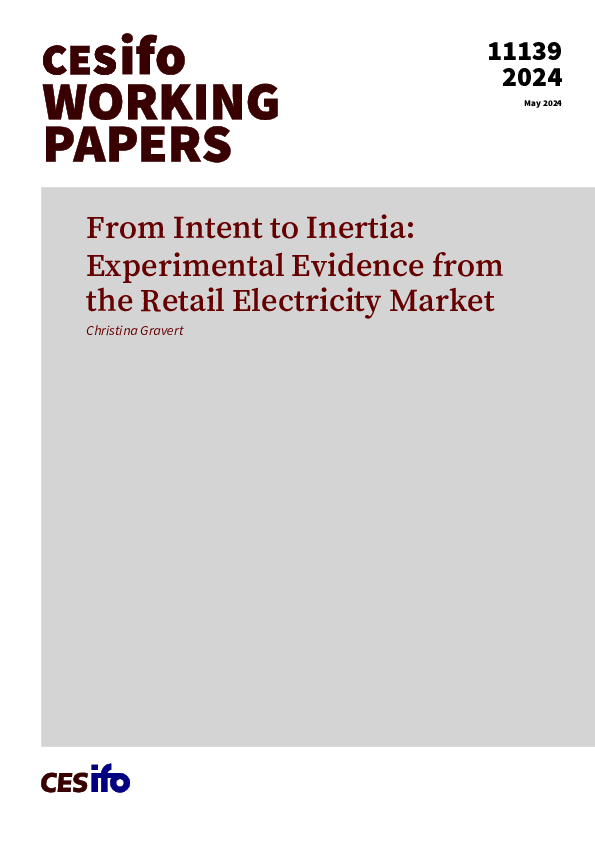From Intent to Inertia: Experimental Evidence from the Retail Electricity Market
CESifo, Munich, 2024
CESifo Working Paper No. 11139

This paper presents new evidence on the question: Why don’t consumers switch electricity contracts? By conducting a large-scale survey experiment with 3% of the Danish working-age population, I have gathered data on respondents’ factual knowledge of the retail electricity market, their beliefs, preferences, and intentions to switch providers. Crucially, I can link their intentions with actual switching behaviors using nationwide smart meter data. My findings reveal a enormous gap between switching intentions and actions. This gap is exacerbated by my experimental interventions which 1) provide information about savings and switching costs and 2) decrease switching costs by offering free access to a switching service. A majority of consumers leaves money on the table by not switching, despite their stated intentions to switch. The low switching rates of on average 1.2% per month cannot be explained by biased beliefs or high switching costs. Demographics do not explain switching behavior, but personality traits such as risk aversion, trust, and a tendency to avoid procrastination matter. These results raise the fundamental question: Why should consumers actively choose electricity contracts? Instead, policymakers should consider implementing smart defaults, for which I find strong support from consumers.
Energy and Climate Economics
Behavioural Economics